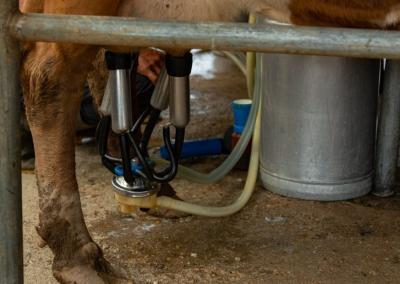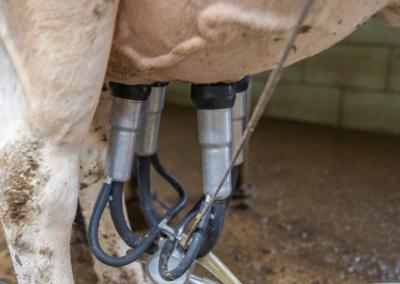On-farm communication: how much milk do we lose through miscommunication?
Interview with Dr. Donata Uchockienė, dairy farm consultant, UAB „Gameta LT“
Donata, many farms complain about poor results, but rarely say &bdash; „we have poor communication“. Is this really a problem on dairy farms?
Yes, and it is very common. Lack of communication is not as obvious as bad feed or a sick cow, but the consequences are just as real – lost milk, missed estrus, improperly fed calf. Farms often don't know how much they are losing every day simply because staff have misunderstood each other, failed to pass on information or simply avoided checking.
What does this look like in practice?
For example, a cow was inseminated yesterday, but the morning worker was not informed, so he watches the same cow again, thinking it is in heat, and sends it for a second insemination. Or a lame cow has been observed, but the information is not passed on to the vet – and a week later we have a severely damaged limb. This happens all the time on farms. And they are not "little things" – they cost money.
Why do these things happen in the first place?
Because on most farms, communication is haphazard. Everything is based on verbal transmission, which is often incomplete, unreliable or does not happen at all. There are no fixed moments of transmission, either in the morning or in the evening. There are no written boards, no journals, no electronic solutions. I often hear people say: "Why write, we tell you everything".
But if we tell you everything, why are so many things still not done?
How could a farmer improve internal communication in this situation?
Start with very simple things. One – introduce a daily work log where each employee briefly notes what has been observed or done. Another – meet at the board at least 2–3 times a week. And more importantly – identify one responsible person to pass information between shifts. Not everyone for everyone, but one clear person who summarises.
One might think that such meetings are only suitable for very large farms…
And there is a mistake. On a small farm, every person is even more important – every forgotten task has an even greater impact there. Even on a family farm with two people, it's a good idea to have a written plan or a blackboard with notes. Because when everything is on your mind, something still gets overlooked.
What specific impact can improving communication have?
When processes become clear, there is less stress, less chaos and more responsibility. This means calves fed on time, estrus observed, lameness cured, breakdown reported on time. And that – directly translates into milk, time and money.













































































































